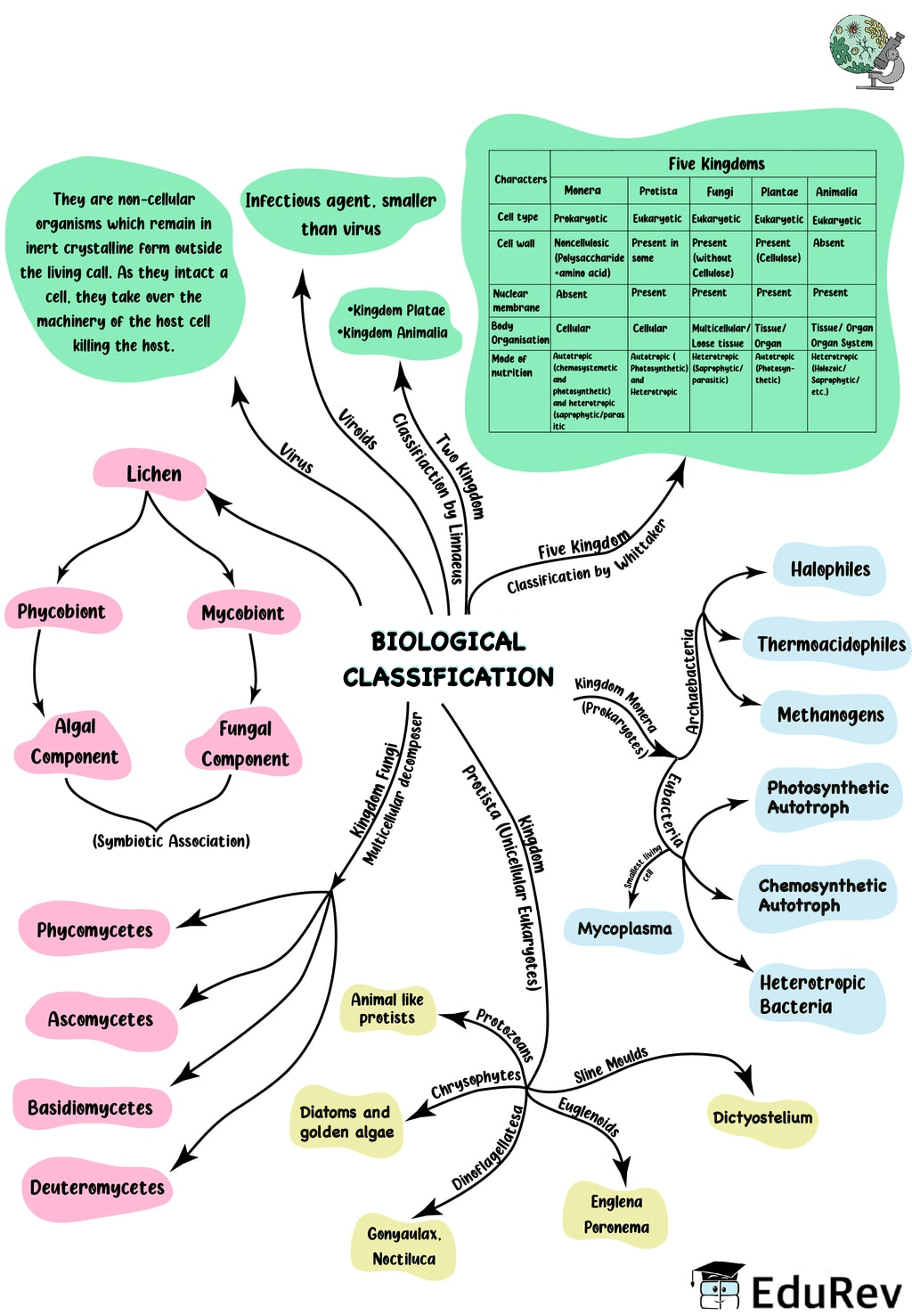NEET Exam > NEET Notes > Biology Class 11 > Mind Map: Biological Classification
Mind Map: Biological Classification | Biology Class 11 - NEET PDF Download

The document Mind Map: Biological Classification | Biology Class 11 - NEET is a part of the NEET Course Biology Class 11.
All you need of NEET at this link: NEET
|
181 videos|361 docs|148 tests
|
FAQs on Mind Map: Biological Classification - Biology Class 11 - NEET
| 1. What is biological classification? |  |
Ans. Biological classification is the process of organizing and categorizing living organisms based on their shared characteristics and evolutionary relationships. It involves grouping organisms into hierarchical categories, such as kingdom, phylum, class, order, family, genus, and species.
| 2. Why is biological classification important? |  |
Ans. Biological classification is important because it helps us understand the diversity of life on Earth and how different organisms are related to each other. It provides a systematic way to organize and study living organisms, allowing scientists to make predictions about an organism's behavior, traits, and evolutionary history based on its classification.
| 3. How do scientists classify organisms? |  |
Ans. Scientists classify organisms based on their shared characteristics, such as physical features, genetic traits, and evolutionary relationships. They use a combination of morphological, anatomical, physiological, and genetic data to determine similarities and differences between organisms and assign them to appropriate taxonomic categories.
| 4. What are the main kingdoms of biological classification? |  |
Ans. The main kingdoms of biological classification are:
1. Kingdom Monera: Includes unicellular prokaryotes, such as bacteria.
2. Kingdom Protista: Includes unicellular eukaryotes, such as protozoa and algae.
3. Kingdom Fungi: Includes multicellular eukaryotes that obtain nutrients through absorption, such as mushrooms and molds.
4. Kingdom Plantae: Includes multicellular eukaryotes that are photosynthetic, such as plants.
5. Kingdom Animalia: Includes multicellular eukaryotes that are heterotrophic and capable of locomotion, such as animals.
| 5. What is the importance of binomial nomenclature in biological classification? |  |
Ans. Binomial nomenclature is the system of naming organisms using two Latinized names, the genus and species. It is important because it provides a standardized and universally accepted way to refer to and identify organisms. This system eliminates confusion and ensures that every organism has a unique scientific name, allowing scientists from different regions and languages to communicate effectively.

|
Explore Courses for NEET exam
|

|
Signup for Free!
Signup to see your scores go up within 7 days! Learn & Practice with 1000+ FREE Notes, Videos & Tests.
Related Searches


















